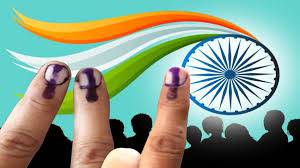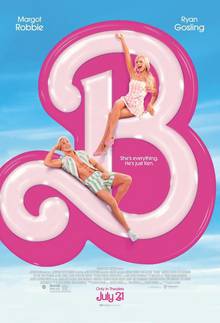
There are certain writers who cannot be categorized into any particular genre. One of those distinctive, elite personalities in the Tamil literary world, is Sujatha. Born as Rangarajan, this prodigy with futuristic concepts in writing took up his wife’s name as a pseudonym to distinguish himself from his contemporary Ra. Ki. Rangarajan.
After completing his Electronics Engineering from MIT Chromepet, he started his writing career with short stories and columns in widely-acclaimed Tamil magazines like Anantha Vikatan and Kumudham. This didn’t entirely compromise his engineering career, though, as he also worked with BEL in Bangalore, playing a pivotal role in implementing the concept of Electronic Voting Machine. Bagavathi Perumal (also an MIT alumnus), who has starred in movies like Naduvula Konjam Pakkatha Kanum and Oru Kanniyum Moondru Kalavaanigalum, recalls the dutiful scolding of Sujatha when he told him that he would be joining the cine industry after graduation : “Why on Earth did you then take up Engineering? At least, your seat would have been filled by a deserving candidate.” was Sujatha's response.
Sujatha created a desi dimension to classic crime thrillers and detective stories. His characters Ganesh – Vasanth were analogous to Sir Arthur Conan Doyle’s Sherlock Holmes – Watson, although the plots were quite different. When his career transcended after he started writing dialogues for films, the Ganesh – Vasanth duo were virtually presented in the movie, Anniyan, through Prabhakar (Prakash Raj) – Chaari (Vivek).
His novels always had some uniqueness and each could be differentiated from one another in some aspect. Take the novel, ‘Aa…’ for instance. Every chapter of this novel ends with the phrase 'Aaaa..' - each one corresponding to the context of that chapter - but never once is this mood forcefully fitted into the writing or storyline, throughout the 26-odd chapters.
Sujatha’s stories always had a bit of scientific aspect in them either in the form of gadgets or theories, which were totally new then. His novels, ‘En Iniya Iyandhiraa’ (My Dear Machine) and ‘Meendum Geno’ (Geno is Back), the sequel to the former, stand tall amongst his science fictions. It is noteworthy that director Shankar took the baseline of his movie, Endhiran, only from En Iniya Iyandhiraa. His short stories also had a flavor meant to them, with adequate space for sexual contexts then and there.
The speciality of Sujatha lies in the way he leaves some of his stories open–ended so that the readers could make their creativity fly above horizons. Druva, one of his short stories, describes a satellite mission where a man gets trapped in space in a rocket, as authorities debate between sending an alternate launch vehicle to rescue him at the expense of several crores, and saving all that money by leaving him stranded out in space.
Sujatha wrote dialogues for renowned directors like Mani Ratnam and Shankar. Who can forget the scene in Endhiran, where Chitti is questioned by a policeman. The cop asks, “Enna Nakkalaa?” (Are you kidding me?), to which the robot replies, “Illa, Nickel. Bolt ellam Nickel la Pannadhu.” (No, Nickel. All my bolts are made of Nickel). There are several Sujatha clichés in other movies, too.
The ancestor to all present-day love stories where the protagonist hops continents in search of love, starting from Gautam Vasudev Menon’s Vinnai Thaandi Varuvaayaa to Chetan Bhagat’s Half Girlfriend, is Pirivom Sandhippom, where the romance goes on from Tamil Nadu to New York. This was later adapted as Aanandha Thaandavam, a Siddharth-Tamanna starrer that received rave reviews.
Another aspect of this legend's work is his contributions towards classic Tamil literature. He has written detailed explanations every couplet of the Thirukkural in an elementary way. Further, his novels introduced some funny-yet-innovative terms that are fine examples of his lateral thinking. ‘Telephoned’, usually ‘tholaipaesi azhaiththal’, was replaced as ‘tholaipaesudhal’ ; similarly, ‘Typewriting’, routinely ‘thattachchu seidhal’ transformed as ‘thattachchudhal’.
Sujatha is a testimony to the saying, ‘Artists never die. They continue to thrive through their art.’ Let us remember this legend, who took Tamil literature to the next level by his unorthodoxy way of narration, breaking away the usual shackles and conventions of a regular story. Hail ho, Sujatha!





